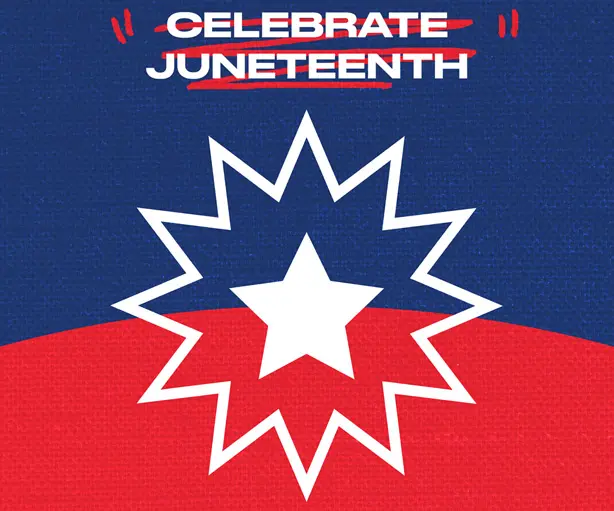RISE MODULE: JUNETEENTH
JUNETEENTH
Juneteenth is a commemorative holiday, honoring June 19, 1865 and the end of chattel slavery in the United States. That day, Black people enslaved in Galveston, Texas, received the news from Union soldiers that they were free. While President Abraham Lincoln signed the Emancipation Proclamation in 1863 making all enslaved people in the rebellious Confederate states free, Union soldiers' ability to enforce it was limited at that time and remained part of the fabric of Texas. On June 19, 1865, Union Maj. Gen. Gordon Granger in Galveston issued General Order No. 3, which stated "The people are informed that in accordance with a Proclamation from the Executive of the United States, all slaves are free" and freed more than 250,000 enslaved people in Texas. Juneteenth is commemorated annually on June 19 as a struggle against slavery and celebration of freedom, however chattel slavery not abolished in the United States until December 1865 when the 13th Amendment was adopted as part of the Constitution.
As many Black Americans began leaving Texas for greater opportunities and to escape legalized racial segregation and persecution in the Jim Crow South, Juneteenth spread and developed into a national holiday to celebrate freedom. The holiday continues to evolve in ways that remember past struggles, honor the work of Civil Rights pioneers and push forward to a collective liberation. The day is celebrated in many ways, but on June 17, 2021, President Joe Biden signed a bill into law making Juneteenth a national holiday.

The holiday continues to evolve in ways that remember past struggles, honor the work of Civil Rights pioneers and push forward to a collective liberation.
SOME CONVERSATION STARTERS:
- Engage friends in their knowledge about Juneteenth. Help to share information and spark meaningful discussion. For example: "What do you know about Juneteenth? May I share an article about it with you to help you with your understanding?"
- When celebrating the 4th of July with family and friends use the occasion as an opportunity to encourage them to learn more about the day. For example: "The 4th of July celebrates independence in our country, but whose independence? We know that slavery was abolished in 1865 so what can we do to be more inclusive in our understanding of celebrating our country's freedom? Can you help me educate others about Juneteenth?"
- Share pop culture moments with friends and family to educate them about Juneteenth. For example: "Did you see the episode of the popular ABC sitcom, Black-ish, about Juneteenth? Here is a clip - tell me what you think?
ACTION STEPS
- Post information about Juneteenth on social media. Engage in discussion with friends, family and colleagues about the holiday.
- Ask about ways your place of business commemorates the holiday. Ensure your place of business educates employees about the importance of the day.
- Share the White House Proclamation making Juneteenth a national holiday with others and amplify its importance.
- Encourage schools (many of whom finish the term in early June) to recognize the holiday with students. Or, encourage schools to begin the year with recognition of significant holidays from over the summer.
- Share Frederick Douglass' What To The Slave Is the Fourth Of July with friends and family and ask them to reflect on how we study and remember history in our country.
- Vote!
- Encourage your local, state and federal representatives to find meaningful ways to educate constituents about Juneteenth.
- Encourage cross-racial and cross-generational discussions about Juneteenth in your communities - public libraries and schools are a great place to start.
WEBSITES
- National Museum of African American History and Culture reading and video
- NPR link about Juneteenth with reading and video
- Overview of Juneteenth from History.com
VIDEOS
- A short primer from Professor Chatelain from Georgetown University about Juneteenth
- Background of Juneteenth produced by Vax
READINGS

Our
Partners
Stay
In Touch
Follow us on social media.